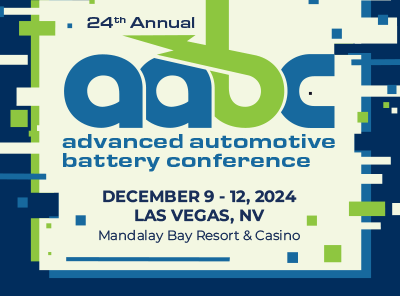2024年度のチュートリアル *
2024年12月9日(月) 午前8:30〜10:00
TUT1: Materials Selection & Design
Materials Selection and Design
Yi Cui, PhD, Professor, Department of Materials Science & Engineering, and Energy Science & Engineering, Stanford University
This tutorial gives an overview of the materials selection and design in order to increase the energy density of batteries, extend the cycle life, and enhance safety significantly. It targets the application of portable electronics and electric vehicles to grid-scale storage.
TOPICS TO BE COVERED:
- Si, Li metal, P Anodes, and S Cathodes for high-energy batteries
- Low-cost metal-H2 batteries for grid-scale storage
- Solid-state batteries
- Ideas to enhance battery safety
INSTRUCTOR BIOGRAPHIES:
 Yi Cui, PhD, Professor, Department of Materials Science & Engineering, and Energy Science & Engineering, Stanford University
Yi Cui, PhD, Professor, Department of Materials Science & Engineering, and Energy Science & Engineering, Stanford University
TUT2: Na-ion Batteries: Materials and State of the Art
Na-ion Batteries: Materials and State of the Art
Philipp Adelhelm, PhD, Professor, Institute of Chemistry, Humboldt-University Berlin
Na-ion batteries (SIB) are rapidly developing as potential alternatives to complement Li-ion battery (LIB) technology. The energy densities of SIBs are close to LIBs, but at the same time they avoid or reduce the amounts of many critical elements used for LIBs. Due to their conceptual similarity, SIBs can be produced on the same manufacturing lines as LIBs, which is a great advantage for market implementation. This tutorial gives an overview on Na-ion battery development, with the focus on materials (anode, cathode) and electrolytes.
INSTRUCTOR BIOGRAPHIES:
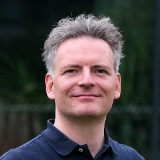 Philipp Adelhelm, PhD, Professor, Institute of Chemistry, Humboldt-University Berlin
Philipp Adelhelm, PhD, Professor, Institute of Chemistry, Humboldt-University Berlin
TUT3: Battery Intelligence
Battery Intelligence
Kevin Wood, PhD, Director, Battery Consulting & Services, Voltaiq, Inc.
Part 1 of this tutorial will cover cover critical techniques and analysis for extracting the maximum insight from standard electrochemical testing data
Topics include: 1) Theoretical Capacity and Standard Reduction potentials; 2) Charge, discharge V-T data; 3) Rest Potentials; and 4) Constant Voltage Charging. This tutorial will help you make the most of this data so that you can detect and remediate battery defects sooner.
Part 2 of this tutorial will cover in-depth tools and analysis capabilities for extracting maximum mechanistic insight out of electrochemical data.
Topics include: 1) dQ/dV; 2) Pulse Characterization; 3) HPPC; 4) GITT; 5) Analytical Pulsing Protocol (APP); and 6) Battery manufacturing analysis. This tutorial will help you make the most of this data so that you can detect and remediate battery defects sooner.
INSTRUCTOR BIOGRAPHIES:
 Kevin Wood, PhD, Director, Battery Consulting & Services, Voltaiq, Inc.
Kevin Wood, PhD, Director, Battery Consulting & Services, Voltaiq, Inc.
TUT4: Battery Management Systems & Charging
Algorithms for Battery Management Systems
Gregory L. Plett, PhD, Professor, Electrical & Computer Engineering, University of Colorado, Colorado Springs
Scott Trimboli, PhD, Professor, Electrical & Computer Engineering, University of Colorado, Colorado Springs
Battery management systems must perform several tasks, including estimating state of charge, state of health, state of power, and state of energy. Various approaches are available to accomplish these goals. This tutorial will give an overview of commonly used methods and discuss some of their individual advantages and disadvantages. Methods based on empirical equivalent circuit models will be highlighted, but methods using physics-based models will also be introduced.
INSTRUCTOR BIOGRAPHIES:
 Gregory L. Plett, PhD, Professor, Electrical & Computer Engineering, University of Colorado, Colorado Springs
Gregory L. Plett, PhD, Professor, Electrical & Computer Engineering, University of Colorado, Colorado Springs
 Scott Trimboli, PhD, Professor, Electrical & Computer Engineering, University of Colorado, Colorado Springs
Scott Trimboli, PhD, Professor, Electrical & Computer Engineering, University of Colorado, Colorado Springs
2024年12月9日(月) 午前10:30〜午後12:00
TUT5: Cell & Pack Design
Cell & Pack Design for xEVs
Kevin Konecky, Vice President, Battery Systems Engineering, Ola Electric
This tutorial will give an overview of battery systems design. An overall product development process will be discussed for a typical system. Design aspects of each individual subsystem will be explored with cost impacts of different design choices. Testing, validation, and designing for safety will be other key areas of discussion.
INSTRUCTOR BIOGRAPHIES:
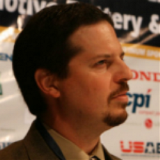 Kevin Konecky, Vice President, Battery Systems Engineering, Ola Electric
Kevin Konecky, Vice President, Battery Systems Engineering, Ola Electric
TUT6: Battery Sustainability
Sustainability in the Automotive Battery Value Chain
Stefan Debruyne, Director of External Affairs, SQM International
Considering the increasing interest in supply chain due diligence related to initiatives, such as the US Inflation Reduction Act and the EU Battery Regulation, the ESG aspect of raw material production is becoming more and more important. However, the ESG landscape is one that merges several highly specialist fields, which can be tremendously confusing to the many stakeholders of the automotive battery value chain. The objective of the tutorial is to provide participants with an understandable overview of some of the latest and key aspects of sustainability initiatives in the automotive battery value chain. What is the best mining assurance standard? What about life-cycle assessment? How do companies work to improve footprints? What is the potential for improvement going forward?
INSTRUCTOR BIOGRAPHIES:
 Stefan Debruyne, Director of External Affairs, SQM International
Stefan Debruyne, Director of External Affairs, SQM International
TUT7: Battery Safety & Abuse Tolerance Validation
Battery Safety and Abuse Tolerance Validation
Shmuel De-Leon, CEO, Shmuel De-Leon Energy Ltd.
Batteries have become daily use components for many applications. New growing segments like EV and grid storage batteries extend the traditional ordinary battery applications. In the race for energy density, we shouldn't forget safety. For example, the Samsung Galaxy Note 7 battery safety case. Unfortunately, we face daily safety events with injuries and severe damage. This workshop focuses on portable, stationary, and automotive battery safety along the battery cycle life (acceptance, testing, assembly, use, transportation, and disposal). This training incorporates Shmuel De-Leon’s and others' experiences on battery safety, representing over 26 years of work in the field. The motivation behind the training is to provide attendees with the knowledge needed to safely handle the batteries in their organization and to support reduction in safety events.
INSTRUCTOR BIOGRAPHIES:
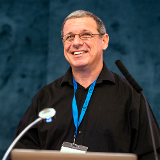 Shmuel De-Leon, CEO, Shmuel De-Leon Energy Ltd.
Shmuel De-Leon, CEO, Shmuel De-Leon Energy Ltd.
TUT8: Economics of Battery Material Development & Manufacturing
Technoeconomic Analysis: Effective Development and Commercialization Pathways for New Battery Technologies
Thomas D. Gregory, Owner and Consultant, Borealis Technology Solutions LLC
Technoeconomic analysis is often thought to be synonymous with cost estimation, but it is also a powerful tool for guiding process and product R&D as well as assessing competing technology. This tutorial will illustrate the value of integrating technoeconomic analysis into new product and process development from laboratory to plant construction, focusing on the early stages of development when critical decisions such as process route selection must be made with limited data. Techniques for estimating capital and operating costs will be covered, ranging from simple analogies to more complex methodologies. Using the results to differentiate between process options and proceed from “What can we do?” to “What should we do?” will be highlighted. These concepts and methodologies will be illustrated with real-world examples based on the instructor’s 40+ years of industrial experience.
TOPICS TO BE COVERED:
- Factors that impact successful commercialization of battery materials.
- Technological feasibility versus economic practicality-market need/company capability intersection.
- Technoeconomic analysis methodology, focusing on the critical early stages of a project where product design and process chemistry and development occur amid significant technical and economic uncertainty.
INSTRUCTOR BIOGRAPHIES:
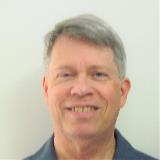 Thomas D. Gregory, Owner and Consultant, Borealis Technology Solutions LLC
Thomas D. Gregory, Owner and Consultant, Borealis Technology Solutions LLC
2024年12月9日(月) 午後1:00〜2:30
TUT9: Solid-State Batteries
Solid-State Batteries
Venkataraman Thangadurai, PhD, Chair in Energy & Faraday Institution; Adjunct Professor, School of Chemistry, University of St. Andrews
In this tutorial lecture, the development of state-of-the-art solid-state Li-ion and Na-ion electrolytes for all-solid-state batteries with emphasis on ionic conductivity and chemical and electrochemical stabilities will be discussed.
INSTRUCTOR BIOGRAPHIES:
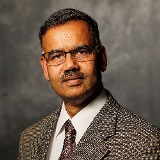 Venkataraman Thangadurai, PhD, Chair in Energy & Faraday Institution; Adjunct Professor, School of Chemistry, University of St. Andrews
Venkataraman Thangadurai, PhD, Chair in Energy & Faraday Institution; Adjunct Professor, School of Chemistry, University of St. Andrews
TUT10: Sodium Sulfate Management: An Emerging Challenge for North American pCAM Producers
Sodium Sulfate Management: An Emerging Challenge for North American pCAM Producers
Marco Romero, Founder & CEO, Positive Materials
Precursor cathode active materials (pCAM) are the weakest link in the North American battery supply chain, despite being critical high-value components. To localize and strengthen the continent’s battery and EV industry, large new pCAM manufacturing facilities are being built or planned across North America, most of which will produce ternary chemistry pCAM. As of today, approximately 800,000 metric tonnes per annum of pCAM capacity is under development.
- Introduction to pCAM and its production method
- Environmental impacts and risks related to sodium sulfate
- Overview of Regulatory Framework/Environmental Standards
- Sodium Sulfate Management Options:
a. Proven Technologies
b. Emerging Technologies
INSTRUCTOR BIOGRAPHIES:
 Marco Romero, Founder & CEO, Positive Materials
Marco Romero, Founder & CEO, Positive Materials
TUT11: Li-ion Cell Design and Manufacturing
Li-ion Cell Design and Manufacturing: Processes, Equipment, and Quality Control
James Kaschmitter, CEO, SpectraPower LLC
This tutorial will begin with an overview of Li-ion cell design for performance and manufacturability, including contrasting the performance and characteristics of commonly used materials. The tutorial will then lead to a detailed review of Li-ion cell manufacturing, from incoming raw materials through final cell formation, aging, and shipment.
INSTRUCTOR BIOGRAPHIES:
 James Kaschmitter, CEO, SpectraPower LLC
James Kaschmitter, CEO, SpectraPower LLC
TUT12: In-Depth Analysis of the Chinese xEV Battery Market
In-Depth Analysis of the Chinese xEV Battery Industry-From Applications to Upstream Materials
Mark Lu, PhD, Senior Industrial Analyst, Industrial Economics & Knowledge Center, Industrial Technology Research Institute
As the world’s biggest EDV market, Chinese xEV industry has become the most important pioneering target. However, specially planned economy, localized regulations, and multiple business models exist and make international companies’ decision-making more difficult. Therefore, this tutorial will try to provide a whole picture of the Chinese EDV battery market including policies & regulations, future forecasts, competitive analysis, battery technology strategies, upstream supply chain, and positioning for foreign enterprises.
INSTRUCTOR BIOGRAPHIES:
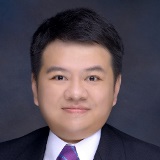 Mark Lu, PhD, Senior Industrial Analyst, Industrial Economics & Knowledge Center, Industrial Technology Research Institute
Mark Lu, PhD, Senior Industrial Analyst, Industrial Economics & Knowledge Center, Industrial Technology Research Institute
2024年12月9日(月) 午後3:00〜4:30
TUT13: Improving the Energy Density of Batteries with Silicon-Based Anodes
Improving the Energy Density of Batteries with Silicon-Based Anodes
Dee Strand, PhD, CSO, R&D, Wildcat Discovery Technologies, Inc.
The key challenges in the use of silicon-based anodes, as well as progress in the implementation of silicon and what can we expect in the future. The latest improvements in other battery components are required to maximize the benefit of silicon-based anodes.
INSTRUCTOR BIOGRAPHIES:
 Dee Strand, PhD, CSO, R&D, Wildcat Discovery Technologies, Inc.
Dee Strand, PhD, CSO, R&D, Wildcat Discovery Technologies, Inc.
TUT14: Li-ion Battery Safety & Thermal Runaway
Li-ion Battery Safety & Thermal Runaway
Ahmad Pesaran, PhD, Chief Energy Storage Engineer, National Renewable Energy Laboratory
Application of lithium-ion batteries (LIB) in electrified transportation and renewable grid is growing at a very fast pace for decarbonization of the passenger vehicles by 2035. Due to the characteristics of current LIB technologies, although rare, there is potential for thermal runaway and fires, as seen by recent fires in Tesla Model S, Chevy Bolt, and grid storage system in an Arizona Utility.
INSTRUCTOR BIOGRAPHIES:
 Ahmad Pesaran, PhD, Chief Energy Storage Engineer, National Renewable Energy Laboratory
Ahmad Pesaran, PhD, Chief Energy Storage Engineer, National Renewable Energy Laboratory
TUT15: Battery Recycling
xEV Lithium-ion Recycling Methods
Steve Sloop, PhD, President, OnTo Technology LLC
By 2025 the original lithium-ion battery manufacturing industry is on course to reach $98 billion worldwide. However, with so many uncertainties, the recycling market has projections of $14 to $40 billion. Recycling must be economically sustainable with future $10/kg cathodes, can it achieve such a goal? A supportive recycling industry will be expected to (1) operate with end-of-life batteries as an asset (2) produce cost-competitive elements, electrodes, or electrode precursor materials, (3) safely address large-scale throughputs, and (4) accommodate low cobalt or no cobalt cathode formulations. This tutorial will comprehensively address technologies of pyrometallurgy, hydrometallurgy, hybrid approaches, and direct recycling. The instructor will introduce these and discuss them in light of cost goals and market realities.
INSTRUCTOR BIOGRAPHIES:
 Steve Sloop, PhD, President, OnTo Technology LLC
Steve Sloop, PhD, President, OnTo Technology LLC
TUT16: The Rechargeable Battery Market Value Chain & Main Trends: 2024-2034
The Rechargeable Battery Market Value Chain & Main Trends
Christophe Pillot, PhD, Director, Avicenne Energy
Michael Sanders, Senior Advisor, Energy, Avicenne Energy
- The rechargeable battery market in 2023
- Battery market by application
- Electronic devices, xEV, e-bikes, power tools
- Stationary applications
- Raw material for lithium-ion battery supply chain
- Battery market forecasts, 2023-2033
- Focus on xEV market
- OEM supply chain
- xEV forecasts
- Impact of Li-ion batteries on lead acid battery marketConclusions
INSTRUCTOR BIOGRAPHIES:
 Christophe Pillot, PhD, Director, Avicenne Energy
Christophe Pillot, PhD, Director, Avicenne Energy
 Michael Sanders, Senior Advisor, Energy, Avicenne Energy
Michael Sanders, Senior Advisor, Energy, Avicenne Energy
* チュートリアルへの参加には、全アクセスパスまたは個別の登録が必要です。
* 不測の事態により、事前の予告なしにプログラムが変更される場合があります。
講演者・スポンサー更新
アジェンダ・講演者・スポンサー更新
講演者・スポンサー更新
講演者・スポンサー更新
